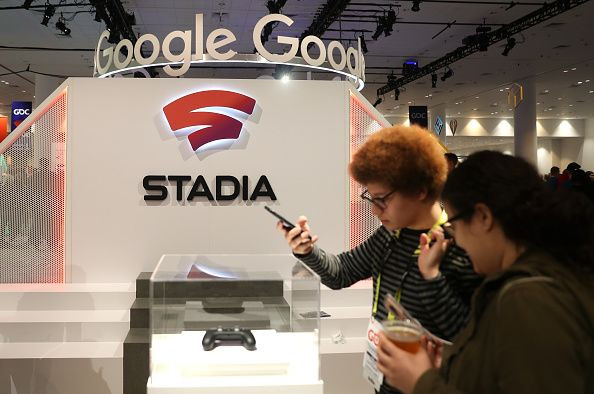Google Stadia's Business Model Doesn't Make Sense

Alphabet's (NASDAQ:GOOG) (NASDAQ:GOOGL) Google unveiled the first details about its cloud gaming platform, Stadia, in late March and said a limited launch would start in November. At the time it sounded like a "Netflix for games" that would let gamers play high-end games across phones, PCs, and set-top boxes. This week, Google revealed more details, including Stadia's business model, and it's a confusing mess that could ultimately doom a promising platform.
Stadia's business model
Gamers can initially stream Stadia games only on the Chromecast Ultra, Pixel 3 phones, Chrome OS devices, and Chrome browsers on PCs this November. They can create accounts and make purchases on the Stadia app on iOS 11+ and Android M+ devices, but the companion app won't stream any games.
Google will also launch a "founder's edition" bundle that includes a Chromecast Ultra, a Stadia controller, a copy of Destiny 2 (including the new Shadowkeep expansion), a three-month Stadia Pro subscription, and a three-month buddy pass (which allows two players to access your account at once) for $130. Starting in 2020, the Pro subscription will cost $10 per month, but it includes streaming access only to certain titles. Other games can be purchased separately at discounted prices.
Subscribers can stream games at a 4K resolution at 60 frames per second (fps) on internet connections faster than 30 Mbps. The recommended minimum, 10 Mbps, is adequate only for 720p streaming. Next year Google will also launch a free tier called Stadia Base, which will let gamers stream purchased games at up to 1080p and 60 fps. That service won't include any free games or discounts on purchased titles.
The biggest problems with Stadia
Instead of being a " Netflix for games" for which gamers would pay a single monthly fee, gaining unlimited access to a library of games, Stadia is a platform that offers subscribers only a handful of games (including the new Tomb Raider trilogy, Final Fantasy XV, Assassin's Creed Odyssey, and Doom Eternal) and asks them to pay for the rest.
But unlike digital download platforms like Valve's Steam and EA's (NASDAQ:EA) Origin, Google doesn't let gamers download and install the games locally -- meaning that they'll always need a high-speed connection to play their purchased games. The average internet speed in the U.S. was 26 Mbps last year, which indicates many gamers won't subscribe to Stadia Pro because they can't stream 4K games.
Until internet speeds improve dramatically, Stadia will just be a cloud-locked version of Steam for most gamers. That might appeal to those who don't have access to gaming consoles or gaming PCs, but that's arguably a very narrow niche market.
Most of Stadia's better-known launch titles are already available on PCs and consoles. Its first exclusive game, the multiplayer physics game Get Packed, looks more like a low-budget iPad game than a triple-A title like Assassin's Creed Odyssey. Unless Google secures head-turning exclusive titles -- which could be tough because it's an untested platform -- most gamers will simply stick with PCs and consoles.
Other business models make more sense
Google also ignored Sony's (NYSE:SNE) streamlined approach to cloud gaming with PS Now. PS Now lets gamers stream more than 750 PS2, PS3, and PS4 games -- many of which are exclusive to Sony's consoles -- to PS4s and Windows PCs. It costs $20 per month, $45 for three months, or $100 per year -- which is cheaper than Stadia Pro's annual rate.
Sony also allows PS4 subscribers with spottier internet connections to download PS2 and PS4 games to their consoles. PS Now doesn't offer 4K streaming like Stadia, but downloaded titles can be played at 4K resolutions on the PS4 Pro.
PS Now had 700,000 subscribers at the end of 2018. That's a tiny sliver of its installed base of 96 million PS4s, but that base has grown more than 40% every year since its launch in early 2014 -- which indicates that Sony's early move into the cloud gaming market is paying off.
Microsoft's (NASDAQ:MSFT) Xbox Game Pass and EA's Access platforms will also likely keep gamers away from Stadia. The Xbox Game Pass gives gamers unlimited downloads from a rotating library of over 200 Xbox 360 and Xbox One games for $10 per month. Origin Access (PC) and EA Access (Xbox) are similar platforms for EA games that cost only $30 per year. These aren't cloud gaming services, but they still compete against Stadia Pro in the "all you can play" market.
The bottom line
Google Stadia showcases some bleeding-edge technology, but it won't turn the gaming market upside down as it is currently proposed. It lacks compelling exclusive games, the bandwidth requirements are too high, and services like PS Now, Xbox Game Pass, and Origin Access already let gamers play games locally.
Stadia gives us a glimpse into the potential future of gaming, but it probably won't kill consoles or move the needle for Google anytime soon.
This article originally appeared in The Motley Fool.
Suzanne Frey, an executive at Alphabet, is a member of The Motley Fool's board of directors. Teresa Kersten, an employee of LinkedIn, a Microsoft subsidiary, is a member of The Motley Fool's board of directors. Leo Sun has no position in any of the stocks mentioned. The Motley Fool owns shares of and recommends Alphabet (A shares), Alphabet (C shares), Microsoft, and Netflix. The Motley Fool recommends Electronic Arts. The Motley Fool has a disclosure policy.











